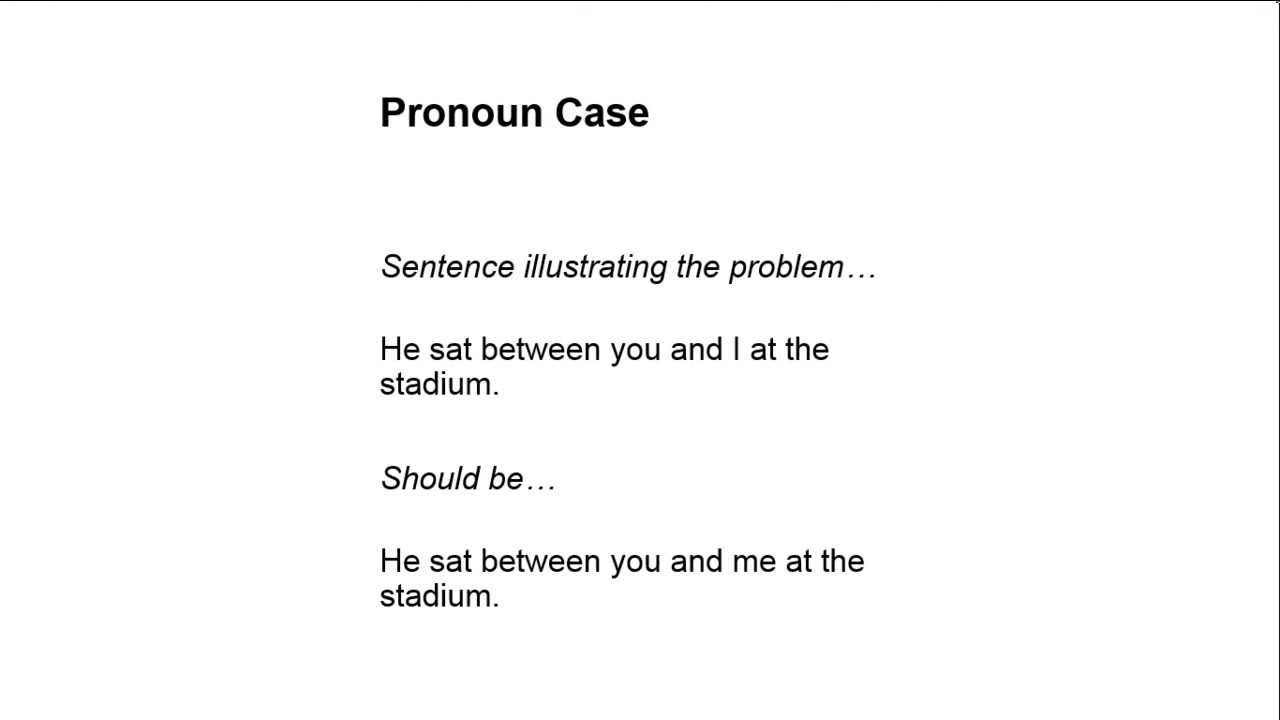Overview
Some common types of pronoun errors include pronoun agreement, pronoun ambiguity, pronoun shifts, and pronoun case. Those errors affect clarity of expression.
Pronoun Agreement
Pronouns should agree in number, person, and gender with the noun or noun phrase to which they refer. A singular pronoun refers back to a singular noun and a plural pronoun refers back to a plural noun. For example, “Jane grabbed her books and threw them in her backpack.” The pronoun them refers to the plural noun books. Similarly, the possessive pronoun her refers back to the owner of the books, Jane. One of the most difficult and controversial aspects of pronoun agreement results when writers cast pronouns to avoid sexism, as in a sentence like “A student must bring their books to class,” mixing the singular student with the plural pronoun their. It can be recast to “Students must bring their books to class.” In this case, the pronoun could also be eliminated entirely, as in “Students must bring books to class.”
Pronoun Ambiguity
Pronouns should also refer clearly to specific antecedents. For example, “When the cat jumped the fence, it fell over.” Did the cat fall or did the fence fall? Recast as “When the cat jumped the fence, the fence fell over.” Similarly, “The senator was less interested in presenting the position of his constituents than providing a platform for special-interest groups. This led to defeat in the next election.” Does the senator’s defeat refer to disinterest in constituents or to interest in special-interest groups?
Pronoun Shifts
This common error occurs when a writer shifts from one viewpoint to another. For example, “When one registers for classes, you must make sure you’ve taken the prerequisites.” The sentence begins with the third person one, and then shifts to the second person you. It can be recast as, “When you register for classes, you must be careful to make sure you’ve taken the prerequisites” or “When students register for classes, they must make sure they’ve taken the prerequisites”.
Pronoun Case
Some pronouns such as I, you, he, she, it, we, they, and who are meant to be used as subjects, while others such as me, you, him, her, us, them, and whom are meant to be used as objects. If a pronoun that should be used as a subject is used as an object, or a pronoun that should be used as an object is used as a subject, it is an error of case. For example, a sentence such as “Mary and me went to the library” should be recast as “Mary and I went to the library.”
Interested in English tutoring services? Learn more about how we are assisting thousands of students each academic year.
SchoolTutoring Academy is the premier educational services company for K-12 and college students. We offer tutoring programs for students in K-12, AP classes, and college. To learn more about how we help parents and students in Newport, NH: visit: Tutoring in Newport, NH




